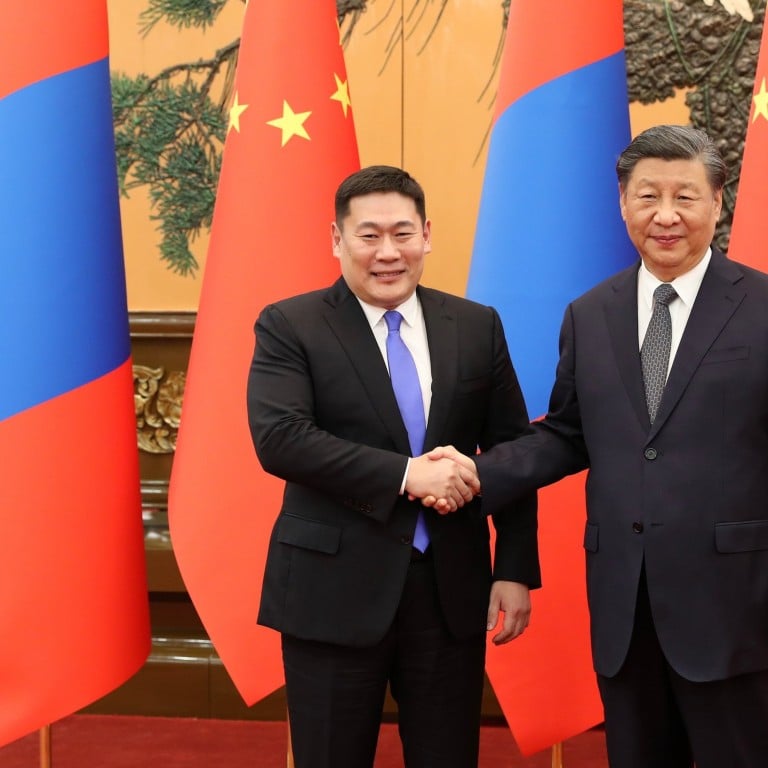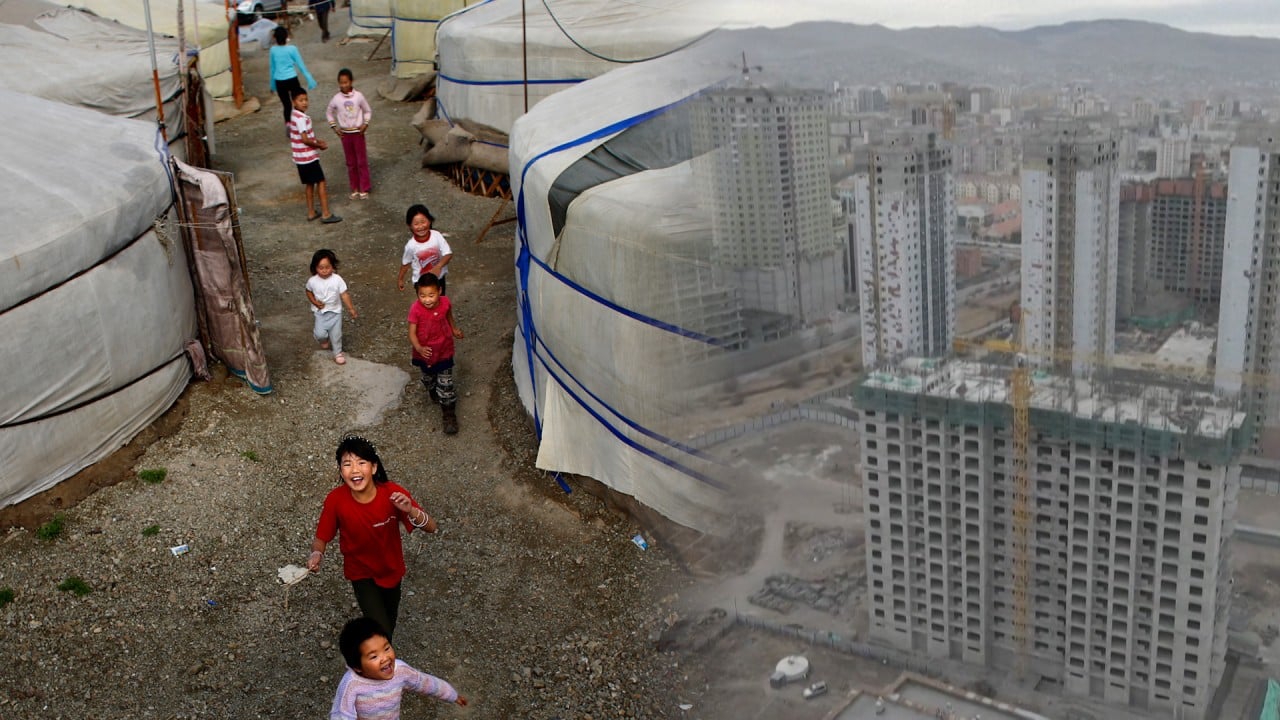
Exclusive | Between China and Russia, landlocked Mongolia eyes summit to enhance ties as geopolitical pressures mount
- Mongolian Prime Minister Luvsannamsrai Oyun-Erdene says interconnectivity is being prioritised, and his country is waiting for its two neighbours to act
- Highly sought-after China-Mongolia-Russia economic corridor would enhance resource trade and investment flows as Western sanctions have upended supply chains
Mongolia says it is trying to arrange a summit with China and Russia to enhance their collaborative projects, and a gathering of the neighbours could speed up new railway connections and economic corridor developments.
Mongolia’s prime minister also tells the Post that a feasibility study is being conducted to further enhance the nation’s involvement in China’s Belt and Road Initiative that aims to link economies into a trading network.
“Our Ministry of Foreign Affairs is working with different diplomatic channels to organise the summit with Russia and China,” Luvsannamsrai Oyun-Erdene said in a video chat via Zoom last week while attending the World Economic Forum in Davos, Switzerland. “[But] we have not set a date, yet.”
China trade heads into 2024 under a cloud despite December uptick
Mongolia, a landlocked country squeezed between Russia and China, is heavily dependent on both.
The last meeting of the three countries’ respective government heads was held in the Uzbekistan city of Samarkand in September 2022.
Oyun-Erdene also expressed hope that President Xi Jinping will visit Mongolia this year to mark the 10th anniversary of his last visit to the country.
A China-Mongolia-Russia economic corridor, proposed by Beijing as part of the belt and road to enhance regional infrastructure connectivity, trade and investment flows, would be discussed at any such summit, according to Oyun-Erdene.
Oyun-Erdene says the landlocked country “is ready to connect” to the Power of Siberia 2 pipeline, which will pass through Mongolia to deliver 50 billion cubic metres of Russian gas annually to China.
“We’re waiting for the Chinese and Russian sides to finalise their detailed study on the numbers and economic figures,” he added. “I believe that we can commence this project soon – once the Chinese and Russian sides are ready.”
Oyun-Erdene said that his country’s relationship with China was “at its highest level”, and that both sides were developing a “comprehensive strategic partnership”.
The value of Mongolian merchandise shipments to China – comprising mainly coal, copper and other materials – jumped 40.9 per cent, year on year, to US$13.1 billion last year, China customs data showed. Mongolia bought US$3.5 billion worth of Chinese goods in the period, up 25 per cent from a year earlier.
‘We’re open and ready’: Mongolia prime minister courts global investors
“Between 2024 and 2025, we will have new ports for exports to China, and we truly believe that it will greatly enhance trade and economic cooperation between the two countries,” Oyun-Erdene said.
“And we believe that this will increase our exports fourfold,” he said, without providing a timespan.
Both countries are extending cooperation into other new sectors, including joint efforts to curb traffic congestion in Mongolia’s capital of Ulaanbaatar, as well as address climate change, urban planning, public housing and rural development.
“Mongolia is open to investments, especially with the Chinese government, and some of the fundraising process is ongoing,” said Oyun-Erdene, who made an official visit to Beijing in June.
He also said Mongolia is looking to court more tourists to the country, intending to pull in 1 million a year – up from 650,000 in 2023 – and he expects that a third of those could come from China.


